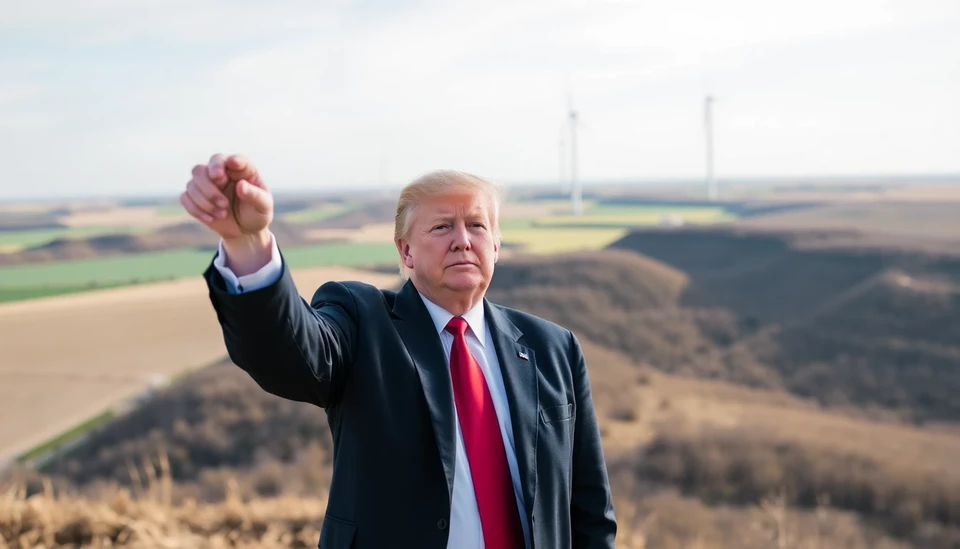
In a significant political alignment, German far-right factions have found common ground with former President Donald Trump in their concerted efforts to dismantle wind energy initiatives in Germany and beyond. This partnership showcases the growing trend of populist leaders and parties leveraging environmental policies to rally their bases, all while seeking to reshape energy strategies in a dramatic fashion.
The AfD (Alternative for Germany) party, known for its nationalist and Eurosceptic views, is voicing its opposition to the necessary expansion of renewable energy sources, particularly wind power. Their rhetoric is conspicuously echoing some of the criticisms previously articulated by Trump during his presidency when he often mocked wind energy as inefficient and damaging. This new coalition hints at a broader insurgency against environmentally progressive policies, not only in Europe but also across the Atlantic.
Trump's previous administration was marked by a series of deregulations that aimed to bolster fossil fuel industries, which he argued would create jobs and stimulate the U.S. economy. Now, this ideological affinity appears to have transcended borders, as European right-wing figures align their slogans and strategies with those of the former president. They argue that the move toward wind energy compromises German industry and relies excessively on foreign supply chains, echoing Trump’s long-standing America First narrative.
The far-right's campaign against wind energy is framed within a broader discourse about national sovereignty and economic independence. The AfD is leveraging public sentiment surrounding rising energy prices and perceived overreach of environmental regulations, capitalizing on fears that Germany's heavy investment in renewable resources is jeopardizing its economic stability. The party’s stance resonates with a segment of the population that finds the transition to green energy both costly and disruptive.
This new political strategy not only links domestic concerns to a global narrative of populist resistance against climate change initiatives but also embodies an increasing polarization in the discourse surrounding energy policy. Critics warn that such alliances risk derailing meaningful climate action and could have severe implications for both local and global environmental efforts.
As the 2024 elections approach, German far-right politicians may continue amplifying their partnership with Trump and his stylistic approach to opposing renewable energy. This coalition could signal a formidable force for those inclined to challenge the ongoing energy transition, suggesting that the battle over the future of energy is far from over and remains deeply intertwined with political allegiances.
The ramifications of this alliance will likely be scrutinized as they unfold, particularly regarding how they influence Germany's renewable energy goals and broader European climate policies. As environmental advocates clamor for robust measures against climate change, the emerging rhetoric from far-right parties raises urgent questions about the future trajectory of energy policy in Europe.
As polarizing as the narratives may be, what remains clear is that the confluence of right-wing politics and climate narratives will shape the dialogue around energy for the foreseeable future.
#GermanPolitics #FarRight #DonaldTrump #WindEnergy #RenewableEnergy #ClimateAction #RightWingAlliances #EnergyPolicy #ClimateChange #EuropeEnergyTransition
Author: Sophie Bennett




